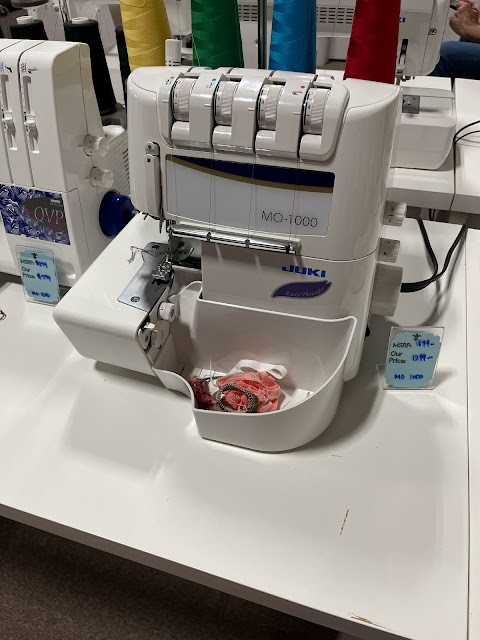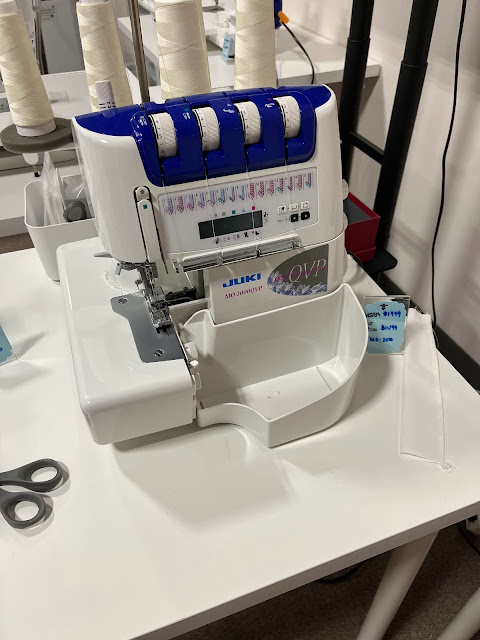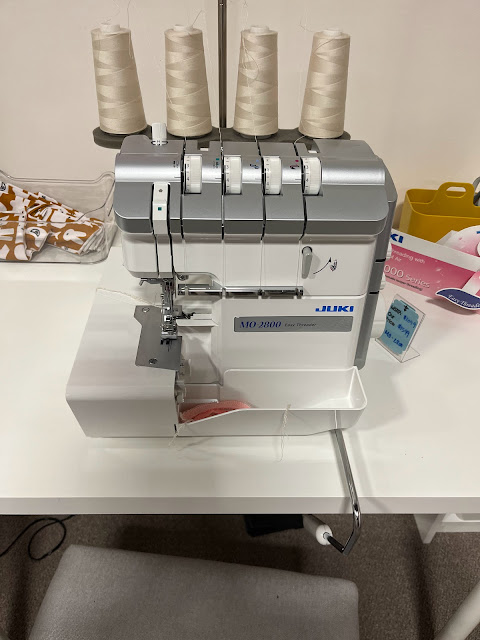Have you ever gone to an animal shelter to adopt a kitten or a baleful-eyed dog and been like, "oh my gosh, this is such a big decision, I can't decide, and they are all so adorable!" That's basically what it's like to pick out a second tier sewing machine.
It's so easy to find a beginner machine. Just go to Amazon and type in "beginner sewing machine" and boom, there's the Brother CS-6000i. Type in "beginner serger" and boom, Brother 1034-d. A gajillion reviews and YouTube videos and all the info you could possibly need. But picking a SECOND tier machine? That's like picking a kitten.
Last year, my Brother 1034-d got a little finicky on a paid sewing job, and I had to take it in to the shop. It was the first time it had ever been serviced. It's never quite been the same after that. Last week, I once again broke the timing on it on the last six inches of another paid sewing job. It's a $300-$400 machine, and it just did not make sense to sink $100 into it for service again. I tried fixing it on my own (I've got an Instagram highlight saved if you need info on the proper way to fix the timing) but honestly, it felt like a waste of time.
After it broke the first time, I knew its days were numbered and I needed to start looking at an upgrade. But I was completely overwhelmed with options. I've always had Brother machines, but I didn't necessarily want another Brother. People love to talk about their fancy Babylock sergers, but fancy doesn't always mean best. I also did not need a combo machine because I have a dedicated coverstitch.
My first step was to search serger reviews on Pattern Review. I saw a lot of highly rated Juki machines. I went down the Juki rabbit hole and found three not-beginner sergers that were "reasonably priced" (in quotes because this is entirely subjective) between $1000-$2000 USD. Considering I made a $300 serger last 10 years, that price range seemed pretty acceptable.
I called the nearest Juki dealer, who is about an hour away. It also happens to be my favorite "local" shop, which carries high end apparel fabrics, indie patterns, sashiko supplies, all kinds of good stuff. They had the three machines I was considering available as floor models for me to try.
I went to The French Seam and spent some time with the owner reviewing these three machines:
Juki MO-1000, retail $1300
Juki MO-2000, retail $1500
Juki MO-2800, retail $1600
First impressions of all three machines: way better than my Brother. Each one had fantastic stitch quality. All three had air threading. The variety of stitch options was pretty much the same.
The 1000 and the 2000 were almost identical in function, except that the 2000 has an LCD display to give you all the stitch settings without you needing to pull out the manual.
The 2800 was the mack daddy of them all. Bigger machine. More space on the bed vertically and horizontally. Optional table add-on (didn't get it...yet). And one very, very important feature: a knee lift.
If I had never used a knee lift before, I probably would've been fine with the 1000. But I've been spoiled with the knee lift on my regular machine (Brother PC-420). I've tried to use other machines without a knee lift and I can't do it anymore. The knee lift is like a third hand when you're sewing. Would you pay an extra $300 for a third hand?
Turns out, I would. The MO-2800 should last me many years, and thinking about $300 spread out over a decade...yeah. Of course get the knee lift.
It is also quiet(er), and easy to thread, and it doesn't shake my sewing table. It's sturdy and sews beautifully. Of course, I'll update after more time, but for now I am thrilled with this machine!




No comments:
Post a Comment
I would love to hear from you! Please feel free to comment below.